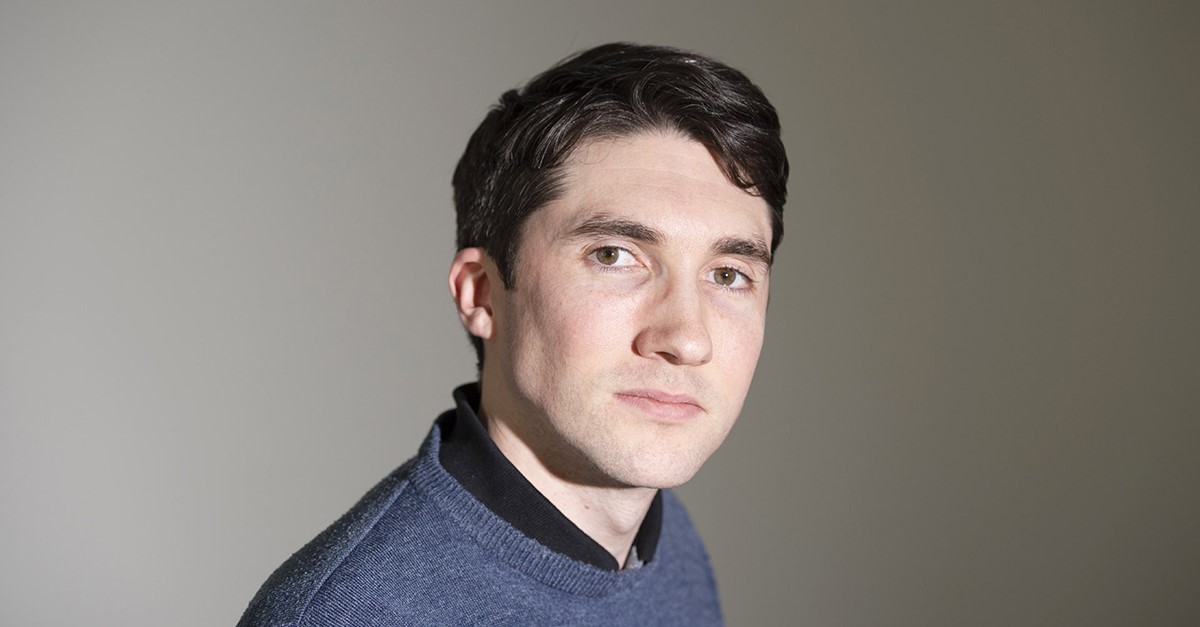
Recently, we caught up with Michael Wilde, Lecturer in Medical Education, to hear more about his work.
Tell us about you and your role
I’m Michael Wilde, a Lecturer in Medical Education at Kent and Medway Medical School. I’ve been working in medical education and research for around ten years now. My journey began in 2015, when I started as a Research Fellow in Medical Methodology on a project Evaluating Evidence in Medicine. In 2018, I became a Lecturer in Philosophy at the University of Kent, and in 2024, I returned to focus on medical education here at KMMS. As for what led me into research—well, I like to say it’s because I couldn’t find enough work as a Justin Trudeau impersonator.
Describe your work
My research has always revolved around evidence: how we think about it, how we use it, and how it supports claims in medicine. I’m particularly interested in the idea of Evidence-Based Medicine and how to establish causal claims—for example, claims about the causes of cancer or the effectiveness of medical interventions. I think the best way to do this is by drawing on a variety of different types of evidence, a position often referred to as “Evidential Pluralism”. I’m also intrigued by how this approach connects with the philosophical idea of Inference to the Best Explanation, building on this research in epidemiology by researchers such as Nancy Krieger and George Davey Smith.
Over the past few years, I’ve had the opportunity to present at conferences and workshops around the world. I gave a talk on the role of computer simulations as evidence in medicine, arguing that they can indeed count as evidence if we take an Evidential Pluralist perspective. I was also invited to a workshop on Evidence-Based Law at the University of Manchester, where I discussed a recent paper I’d written on Evidential Pluralism in the Social Sciences. And I travelled to Hong Kong University of Science and Technology to speak about Inference to the Best Explanation.
Tell us more about your areas of clinical interest
For the last decade, I’ve also been working closely with colleagues on applying Evidential Pluralism to medicine, which we call the “EBM+ approach”. I’m currently part of a project on this, funded by the Arts and Humanities Research Council, alongside teams at King’s College London and the University of Manchester. Our work has reached a range of audiences, from the Cabinet Office and HM Treasury’s Evaluation Task Force to the World Health Organisation’s International Agency for Research on Cancer and the European Commission’s Joint Research Centre. We’ve also written for outlets like the European Commission’s Knowledge for Policy blog and the Evaluative Practice gazette, and we’ve made recommendations to improve how evidence is evaluated across different health and policy organisations.
What would you like to achieve with your research?
I hope that this research will make a difference to the way evidence is used to establish causal claims in medicine. At the very least, I’d like it to help me pay off my student loan. So far, the work has had some real-world impact. A book I co-authored on the EBM+ approach is now referenced in every Monograph published by the International Agency for Research on Cancer, which guides the UN’s efforts to identify the causes of cancer. It has also been cited in BMJ Evidence-Based Medicine to argue that pandemic decisions might have been better informed with an EBM+ approach. And it even features in the latest edition of Trisha Greenhalgh’s and Paul Dijkstra’s classic textbook How to Read a Paper. I think people are often surprised to see philosophical research influencing medicine in this way.
What advice would you give a researcher just starting out in research?
If you’re interested in a starting point, one of my papers offers an introductory overview of the EBM+ approach, based on a talk I gave to the Statistics and Mathematics applied to Oncology group at the French National Cancer Institute. For new researchers beginning their journey, I’d recommend watching this clip of Bertrand Russell—his reflections still hold a lot of wisdom.
And finally, when you’re not working in your various roles, what do you love doing?
Outside of work, I like walking, ideally in the direction of a pub, and I watch a lot of television—probably too much, both in quantity and in questionable quality.